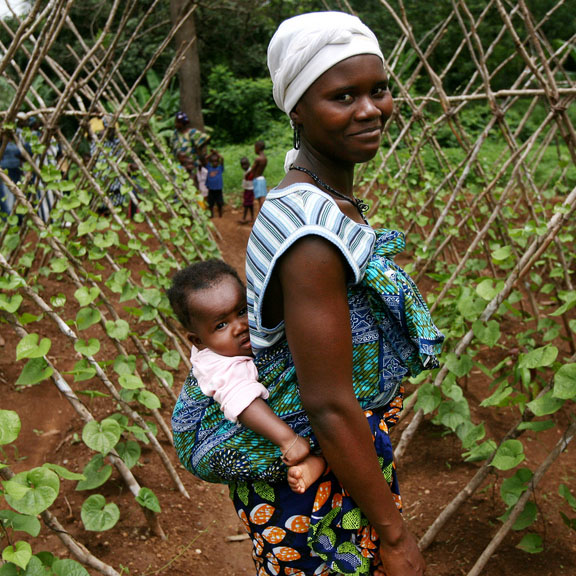
Heifer International applauds President Barack Obama’s announcement today that the Group of Eight Nations (G8) commits to bring the private sector, foundations, governments and civil society together in a New Alliance for Food Security and Nutrition for Africa. The commitment will help keep the promise of the 2009 L’Aquila Summit to, “act with the scale and urgency needed to achieve sustainable global food security.”
But more, it is a commitment that, though it begins with Africa and the pledge to lift 50 million people there out of poverty, can provide a global solution. By energizing and allying all sectors, assisted farmers can create a food revolution and help feed a hungry world.
Today, there are nearly three billion people struggling to survive on less than $2 a day—nearly half the world’s population—and 25,000 children continue to die daily needlessly from hunger-related issues.
There is a solution; one the world is finally coming around to—the smallholder farmer. Today there are 650 million limited resource farmers in the world who grow 70 percent of the food eaten every day. If working together we can help them simply double their production, they can feed themselves, their neighbors, the entire world.
The commitment is significant. So, too, must be the execution. The need and opportunity are both too great to fail.
As committed, the new alliance will:
This is both a critical and opportunistic time. For years, Heifer International has been a leader in what has been called the livestock revolution. We have historically worked on a scale proportional to our limited resources to help demonstrate to the world the power and potential of the rural, smallholder farmer—the majority of them women.
We believe that this commitment, this pledge to think differently, to act differently, will help prioritize investments that improve nutrition and specifically target small-scale farmers, particularly women, who form the backbone of agriculture in many developing nations and who play a critical role in transforming agriculture and building thriving economies.